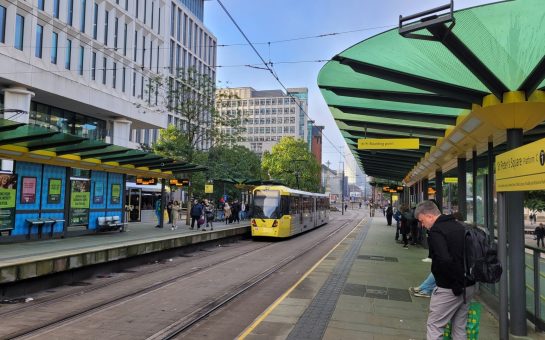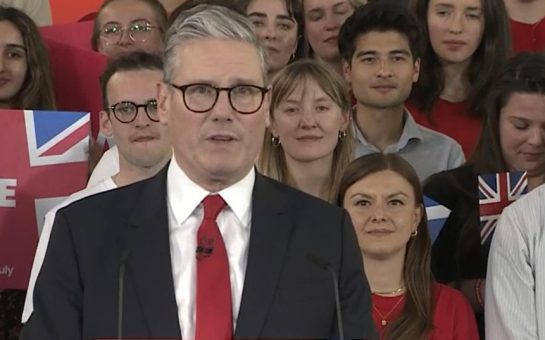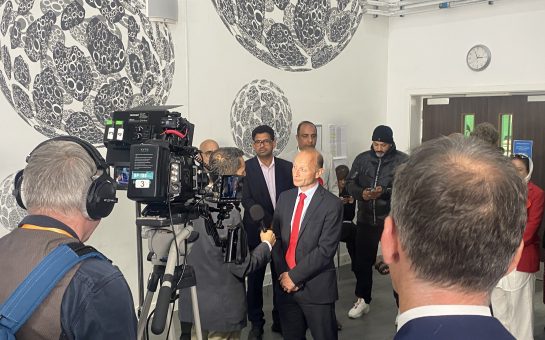On October 12 1942, former Chinese leader and Communist dictator Mao Zedong wrote an editorial in Shanghai Communist newspaper Liberation Daily entitled ‘The Turning Point in World War II.’
He was referring to the Battle of Stalingrad as the “Red Verdun,” with the German army halted in eastern Russia in World War Two as they had been in Verdun in the First World War.
The French Second Army halted the German advance in Verdun in 1916 in World War One on the western front, and the far left Communist forces of Russia stopped their Nazi counterparts in the winter of 1941/42 on the eastern front.
But how had the two extreme political forces of Nazism and Communism been given the pathway to exist together?
Think back to 1917 when a certain Vladimir Ilyich Ulyanov – Lenin – returned from exile in Switzerland, to launch the biggest and most successful socialist revolution in history. The seeds of Stalinism, and consequently Nazism and Maosim, had been sown.
With the continent of Europe in a war of attrition during the First World War, Russia lost confidence in Tsar Nicolas II who abdicated in March 1917, so conditions for Lenin to organise a coup had finally arisen.
Alexander Kerensky’s Provisional Government was up in tatters and the workers lost confidence both in the Tsar and in the Provisional Government, so joined forces with Lenin’s Bolsheviks to successfully overthrow the right and seize an unprecedented form of power at the time.
What followed was the darkest chapter in the history of the whole world.
When an ideology as big as Marxism comes to the fold, and a leader as charismatic as the ruthless Lenin is at the head of a unique revolution, opposition will inevitably form and consequently multiply – and that’s just what happened.
Civil War followed World War when Alexander Kolchak’s white anti-Communist movement collided with Lenin’s Bolsheviks fighting for power in Russia.
Lenin’s forces emerged victorious, but at the cost of their leader falling ill and eventually dying in 1924. To this day, Lenin remains the single most influential political figure of the 20th century.
Leninism indirectly led to Stalinism. Stalinism in Russia largely gave rise to Nazism as a counter-force. It also laid the blueprint for Maoism in China, who like Russia, overthrew a long-standing dynastic regime using the conditions of a World War to their advantage.
Communism was a detested force, and in his rallies German leader Adolf Hitler repeatedly expressed his desire to crush Communist Russia and use it as ‘living space.’ This was in essence, the pre-existing conditions of the Battle of Stalingrad, which Mao went on to label a “turning point in history” – with Soviet victory resulting in Communism further on the rise as Nazism began to decline.
Mao was proven right. The spread of Communism after World War Two led to a Cold War between the historically anti-Communist United States and Russia under Soviet rule.
But to put it bluntly, the Cold War didn’t start in 1945 – the Cold War started in 1917.
SOCIALIST COUP
The 1917 Revolution wasn’t a victory for the workers, it was a defeat. Under Marxist-Leninist rule, the Soviet Union and China became politically, socially and most importantly economically broken.
Although it appeared so at first, there were no winners of the October Revolution in 1917. It wasn’t a coup for the Russian workers; it was a coup for the socialist government.
And if Jeremy Corbyn seizes power on December 12, Downing Street in the 21st century will become the centre point for the start of a potential social democratic revolution, just as the Winter Palace was in the 20th century. And just like in winter 1917, there will be no winners if Corbyn claims a majority.
Like the Provisional Government in 1917, Conservative Party leadership is being questioned after three-and-a-half years of failing to deliver a Brexit deal that satisfies Brussels and the European Union.
Current Conservative Party leader Boris Johnson is favourite to win the election, but writing Corbyn off would be wrong because there could well be a twist in the plot between now and the election.
It’s important to note that in 1917, Russian workers saw Lenin’s promises as an opportunity for freedom, and many UK citizens currently see a Corbyn government as an opportunity for them to break free from and better their position in the system of business and commerce.
Corbyn is promising a lot for the workers, as Lenin did in 1917.
However, these promises have been exposed as both disingenuous and cruel to the naive electorate who would vote for Corbyn.
Debunkers include director of the Institute for Fiscal Studies (IFS) Paul Johnson, who last month said: “It’s impossible to understate just how extraordinary this manifesto is in terms of the sheer scale of money being spent and raised through the tax system.
“The Labour manifesto suggests they want to raise £80bn of tax revenue and they suggest that all of that will come from companies and people earning over £80,000-a-year. That is simply not credible.
Our manifesto is the most radical, hopeful, people-focused, fully-costed plan in modern times.
This is our chance to transform our country. Are you with us? Pass it on. pic.twitter.com/wjCPnHj4Ff
— The Labour Party (@UKLabour) November 21, 2019
“You cannot raise that kind of money in our tax system without affecting individuals.
“If you are looking at transforming society, which the Labour Party is absolutely upfront about doing, then you need to pay for it and it can’t be somebody else that pays for it. We collectively will need to pay for it.”
What does remain certain is that if Corbyn wins the election, Britain will have more enemies than they do friends on the world stage – including potentially their most important ally, the United States.
In 1917, there was the ongoing problem of the First World War. In 2019, there’s the ongoing problem of Brexit negotiations.
They’re two very different situations, but it emphasises the difference between the two worlds and what’s happened over the past century.
Whatever happens on December 12, Britain must move forward and deal with the real issues at hand – the more serious issues than Brexit, such as climate change, the NHS and other public services.
If it doesn’t, then more divisions will occur both nationally and worldwide, and the many current ones will intensify just as was the case after the 1917 October Revolution.
That ended well, didn’t it?



